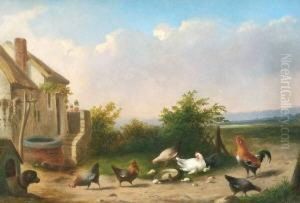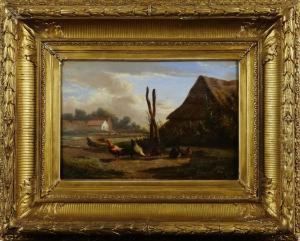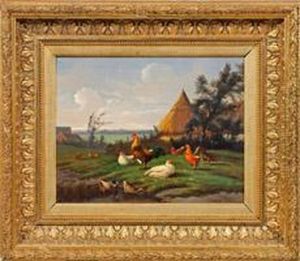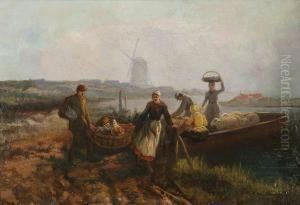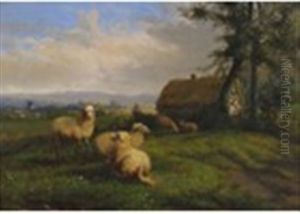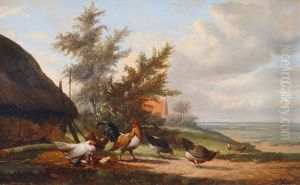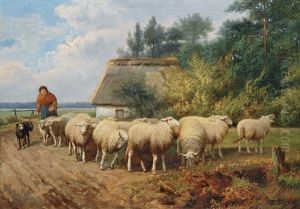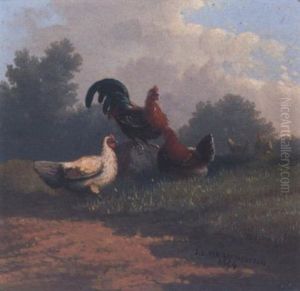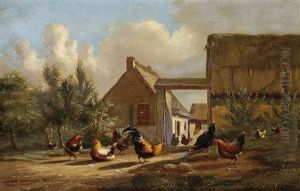Johan Lodewijk Van Leemputten Paintings
Johan Lodewijk Van Leemputten was a Belgian painter born on November 23, 1849, in Werchter, which was then part of the United Kingdom of the Netherlands. He is best known for his rural landscapes and animal paintings, particularly those depicting chickens, sheep, and farm scenes. His work is characterized by a realistic style, with a keen eye for detail and a fondness for pastoral themes.
Van Leemputten received his initial art education at the Academy of Mechelen and later studied in Brussels. Although he lived through a period that saw the rise of Impressionism and various other modern art movements, Van Leemputten remained largely a traditionalist, committed to the realist painting techniques that were prevalent in the earlier part of the 19th century.
Throughout his career, Van Leemputten exhibited his work widely, participating in shows in Belgium and abroad. His paintings were well-received, and he gained a reputation for his ability to capture the essence of rural life. He often depicted the Flemish countryside, providing a window into the lives of the local peasants and their interactions with nature. His artworks are often noted for their serene and timeless quality, as well as their meticulous brushwork.
Johan Lodewijk Van Leemputten passed away on February 22, 1910, in Antwerp, Belgium. Today, his works can be found in various museums and collections, appreciated for their contribution to the genre of animalier and landscape painting in Belgium during the late 19th and early 20th centuries.
